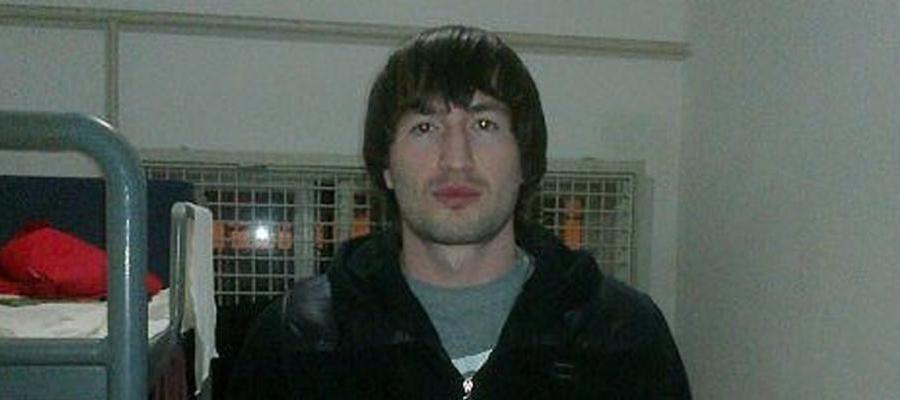
The European Court of Human Rights applied to the Russian Government with questions about the circumstances of apprehension of Suleiman Edigov from the Chechen Republic, who reported that back in 2012 he was kept by law-enforcement officers in a cellar without formalizing any procedural documents and electricity tortures were against him.
As we have previously reported, in November 2013, Zina Umarova applied to the Committee Against Torture. He informed human rights defenders that in August 2012 her son Suleiman Edigov was apprehended, and then for over forty days he was illegally detained without formalization of the fact of apprehension, and violence was applied against him.
As Edigov recalls, the police officers demanded that he confessed of murder of their colleague, as well as of illegal arms traffic, and in order to achieve that, they applied aluminum wire to Edigov’s fingers of both hands and joined the wires together and connected them to an electric outlet. Subsequently, at one of the court hearings on the criminal case, Edigov showed the scars on his fingers to the court and told the following: “Injuries and ulcers developed on my hands due to electricity torture, my hands started to rot. They started to stink so bad that the officers themselves could not stay in one room with me”.
Only on 21 September 2012, Edigov’s measure of restraint was selected and he was put to the investigative cell in Grozny. During his admission, the duty officer noticed his bodily injuries (“burns on the fingers of his hands”). Later on, due to concerns about his safety, Edigov provided explanation to head of the Operational Department of the Pre-Trial Detention Center that he got these burns when he laid electrical cables in Argun. The case materials also feature the theory that Edigov got these scars back in Sweden where he used to be based before, and that he got these not due to contact with wire but because of the light bulb that exploded.
The case of Suleiman Edigov attracted public attention when, on 1 November 2013, judge of the Supreme Court of the Chechen Republic Vakhid Abubakarov disqualified himself from examining this very case. As explained in the decision, it was done on the grounds that the judge had received a telephone call from «a person identifying himself as the Minister of the Interior for the Chechen Republic, general-lieutenant Alkhanov Ruslan Shakhaevich», who warned the judge against acquittal.
Moreover, judge Abubakarov in his self-disqualification statement (page 1., page 2) elaborated on the following: «In the course of the trial investigation the court was provided with the accumulation of the consistent evidence confirming the words of defendant S.S.Edigov, stating that police investigators who report to R.Sh.Alhanov illegally abducted him on August 3, 2012, imprisoned him until September 12, 2012, wrapping his fingers with aluminum wire, subjected him to electricity tortures, forcing him to confess, and caused him hard-to-heal putrid wounds of the 4th and the 5th fingers of both hands circumferentially».
«After the involvement of the executive of such high rank in my examination of the criminal case against S.S.Edigov, any verdict that I can possibly announce, even in my own consciousness, beyond my will, would look like a yielding to a warning in case of guilty verdict or a demonstration of courage in case of a not-guilty verdict, i.e. it would either be ordered or a protest one», – the judge of the Supreme Court of the Chechen Republic summed up his self-disqualification.
However, further on the new judge of the case German Aleksandrov dismissed a motion of the defendant for disqualification of all the judges of Chechnya due to pressure exerted on their colleague Vakhid Abubakarov based on the fact that «the reasons of his self-disqualification are not confirmed by factual circumstances».
Meanwhile, neither evidence, collected in the course of trial investigation by judge Abubakarov, nor a significant public interest, applications filed with the General Prosecutor and the Chairman of the Investigative Committee, attention of the Civil Society Institutions and Human Rights Council under the President of the Russian Federation could influence the situation.
On 23 May 2014 the Supreme Court of the Chechen Republic chaired by German Aleksandrov delivered its conviction in the case of Suleiman Edigov, charged with criminal offenses under Articles 317 (encroachment on the life of an officer of a law-enforcement body) and 222 (2) (illegal purchase, transfer, sale, storage, transportation or bearing weapons, committed by a group of individuals by prior conspiracy) of Russian Criminal Code and sentenced him to fourteen years and six months of imprisonment.
On 7 November 2014 the Supreme Court of the Russian Federation dismissed Edigov’s appeal against the court decision. At the present time, Suleyman Edigov is serving his sentence in Irkutsk penal colony.
As to investigation of abduction and torture which Edigiv reported, the Investigative Committee issued unlawful six refusals to initiate criminal proceedings.
On 13 April 2015, lawyers with the Committee Against Torture submitted an application to the European Court of Human Rights on behalf of Suleiman Edigov. The lawyers deem that a number of articles of the European Convention of Human Rights were violated with regard to him, including the ones prohibiting torture, the right to the integrity of the person, as well as the right to fair trial.
In July of this year Edigov’s complaint was communicated. The Strasbourg judges posed the following questions to the Russian authorities:
– was Edigov subjected to inhumane or degrading treatment?
– was the investigation on Edigov’s application in compliance with the criteria of effectiveness, defined by the European Court?
– was Edigov deprived of freedom without formalization of appropriate documents?
– was the court hearing on Edigov case independent and impartial?